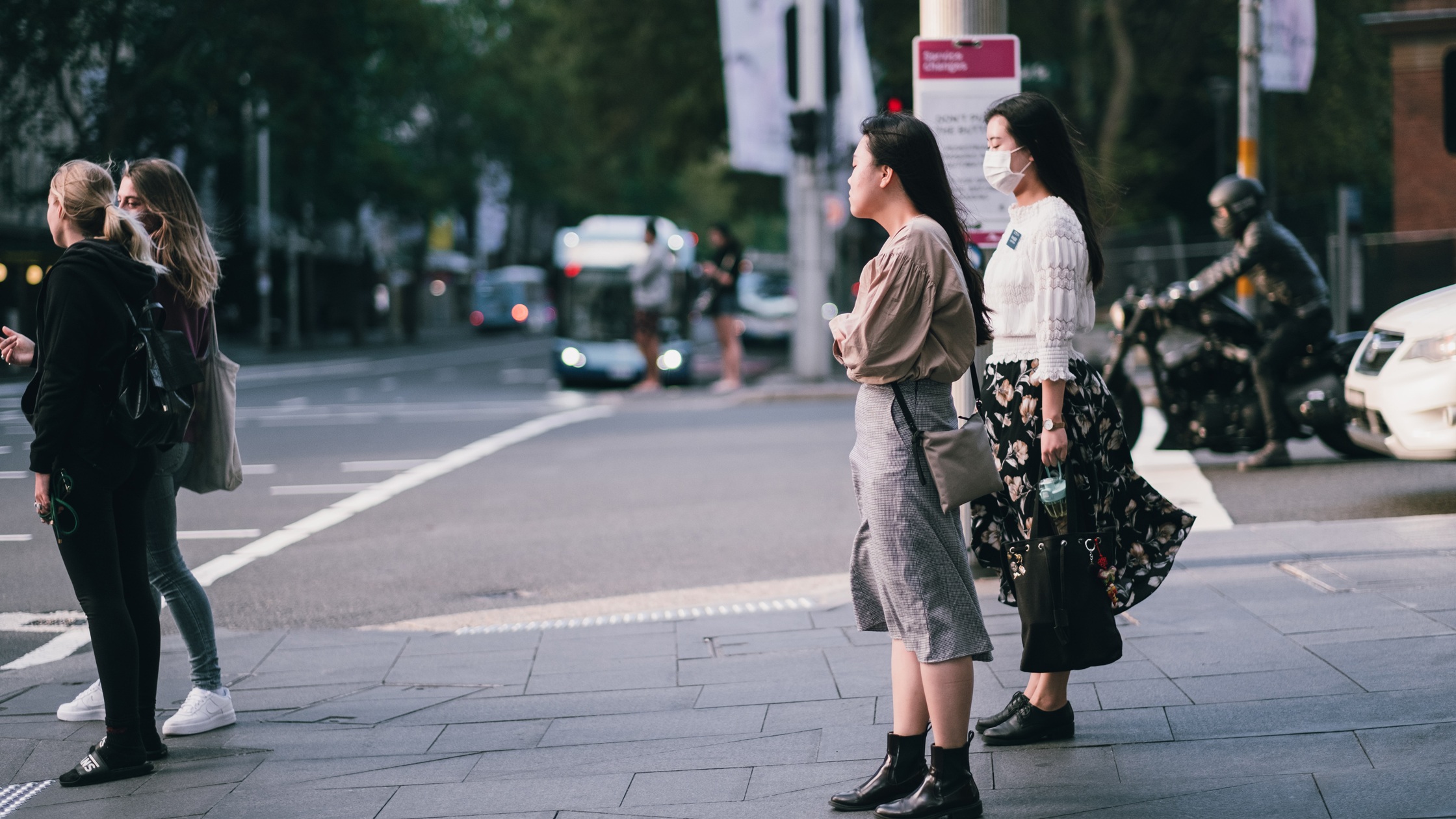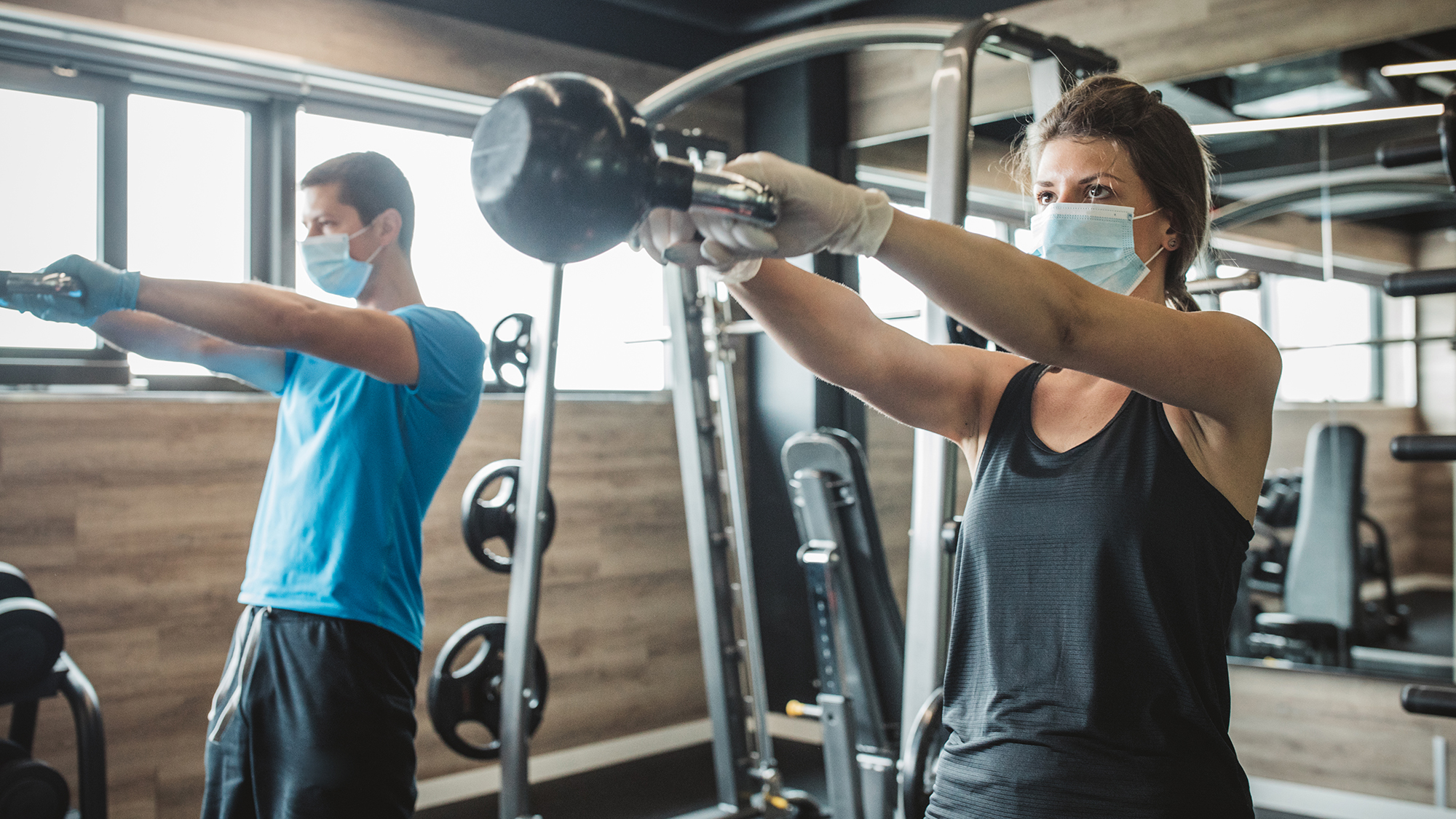COVID-19: You're ten times more likely to catch coronavirus without social distancing
Coronavirus: This new US study shows the COVID-19 combat tactic works. Here's why


Start your week with achievable workout ideas, health tips and wellbeing advice in your inbox.
You are now subscribed
Your newsletter sign-up was successful
Since COVID-19 first began to sweep across the globe, most countries have had the same few key rules in place in an attempt to slow the virus' progress. One: wearing masks, especially in indoor public places, to limit the droplet spread of the virus. Two: rigorous sanitation, washing your hands whenever possible and using alcohol gel or hand sanitiser when out and about. Finally, social distancing, staying around two metres away from people you don't live with when in public.
- NEW: Why working out could reduce risk of COVID-19 symptoms
- PLUS: How a park run can help battle chronic stress
There's been a lot of controversy and speculation around the effectiveness of these rules, especially wearing masks – despite the fact mask-wearing has been scientifically proven to be very effective. Studies have used laser-mapping technology to show the spread of droplets before and after participants put on a mask, while another found mask-wearing alone lowered the number of infections by over 78,000 in Italy.
However, this latest study, published by researchers from Johns Hopkins University's Bloomberg School of Public Health, looked at the effectiveness of the third rule, social distancing, on a mass scale.
Previously, we've been unable to get concrete data on how effective social distancing can be (other than small fragments of data from smartphone apps), but the scientists studied over 1,000 people in the state of Maryland about their social distancing practices, use of public transportation, SARS-CoV-2 infection history, and other COVID-19-relevant behaviors.
It's one of the first historic looks at a community's social distancing practices, and we expect these sorts of studies will become more common the longer the precautions continue.

The researchers found strict social distancing measures to be extremely effective in handling coronavirus, reducing your likelihood of contracting COVID-19 by an enormous 90%. The stricter and more rigorous social distancing measures you put in place, the safer you'll be.
Of course, this is just confirmation of what we already suspected. However, with relatively few large-scale studies on social distancing available, it's a relief to know that the systems we've put in place seem to be working – and it's an effective reminder that if everyone follows the rules, the virus can be beaten.
Start your week with achievable workout ideas, health tips and wellbeing advice in your inbox.
Of course, the only real solution to the problem is a coronavirus vaccine. This is still a little ways off, as late-stage trials around the world in countries like Russia, Brazil and the UK continue to ramp up. Notably, Oxford University in partnership with pharmaceutical firm AstraZeneca. For all the updates on the coronavirus vaccine's progress, check out our comprehensive guide.
Liked this?
Matt Evans is an experienced health and fitness journalist and is currently Fitness and Wellbeing Editor at TechRadar, covering all things exercise and nutrition on Fit&Well's tech-focused sister site. Matt originally discovered exercise through martial arts: he holds a black belt in Karate and remains a keen runner, gym-goer, and infrequent yogi. His top fitness tip? Stretch.
